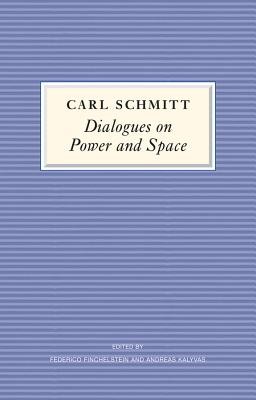
- We will send in 10–14 business days.
- Author: Carl Schmitt
- Publisher: Polity Press
- ISBN-10: 0745688691
- ISBN-13: 9780745688695
- Format: 13.7 x 21.3 x 1 cm, softcover
- Language: English
- SAVE -10% with code: EXTRA
Reviews
Description
Written in the early stages of the Cold War by one of the most controversial political and legal thinkers of the twentieth century, Carl Schmitt�s two short dialogues on power and space bring together several dimensions of his work in new ways. The dialogues renew Schmitt�s engagement with the questions of political power and geo-politics that had been a persistent concern throughout his intellectual life. As a basis on which to think through the historical role of human agency in relation to power and its new geographies, the dialogues condense and rework key concepts in Schmitt�s political theory during a transitional period between his Weimar and fascist years to the post-war writings.
In this book, Schmitt develops a new �dialectics� of modern power and an original understanding of the global spatial transformations of the Cold War period. Equally important, the dialogues anticipate the debates on the new geo-political possibilities and threats related to cosmic spaces, overpowering technological advances, and the existential predicament of the human in an increasingly multipolar world.
EXTRA 10 % discount with code: EXTRA
The promotion ends in 17d.21:06:28
The discount code is valid when purchasing from 10 €. Discounts do not stack.
- Author: Carl Schmitt
- Publisher: Polity Press
- ISBN-10: 0745688691
- ISBN-13: 9780745688695
- Format: 13.7 x 21.3 x 1 cm, softcover
- Language: English English
Written in the early stages of the Cold War by one of the most controversial political and legal thinkers of the twentieth century, Carl Schmitt�s two short dialogues on power and space bring together several dimensions of his work in new ways. The dialogues renew Schmitt�s engagement with the questions of political power and geo-politics that had been a persistent concern throughout his intellectual life. As a basis on which to think through the historical role of human agency in relation to power and its new geographies, the dialogues condense and rework key concepts in Schmitt�s political theory during a transitional period between his Weimar and fascist years to the post-war writings.
In this book, Schmitt develops a new �dialectics� of modern power and an original understanding of the global spatial transformations of the Cold War period. Equally important, the dialogues anticipate the debates on the new geo-political possibilities and threats related to cosmic spaces, overpowering technological advances, and the existential predicament of the human in an increasingly multipolar world.


Reviews